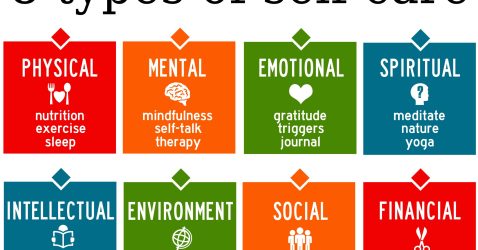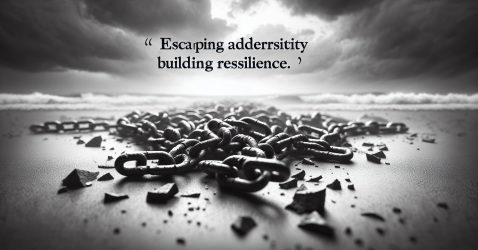What Role Do Hobbies Like Cooking Or Baking Play In Stress Reduction?
Imagine a world where stress doesn’t consume your every waking moment. A world where you have an escape, a creative outlet that brings you joy and helps you unwind. Well, it turns out that hobbies like cooking or baking can play a significant role in reducing stress. Whether it’s experimenting with new recipes, finding solace in the rhythm of chopping vegetables, or the therapeutic process of kneading dough, these activities have a profound impact on our mental well-being. In this article, we will explore how cooking and baking can be more than just a way to satisfy our taste buds, but also a powerful tool in managing stress.

Benefits of Cooking and Baking as Hobbies
1.1 Creative Outlet
Cooking and baking provide a wonderful creative outlet that allows you to express yourself in a unique and delicious way. From experimenting with flavors and ingredients to creating visually appealing dishes, these hobbies encourage your imagination to flourish. Whether you’re trying a new recipe or putting a personal twist on a classic dish, the act of cooking and baking stimulates your creativity, helping you to relax and unwind.
1.2 Sense of Accomplishment
One of the greatest benefits of cooking and baking as hobbies is the sense of accomplishment they bring. With each successfully cooked dish or perfectly baked treat, you experience a boost in self-esteem and confidence. The process of turning raw ingredients into a delicious masterpiece can be incredibly satisfying, giving you a tangible result of your efforts. This feeling of achievement helps to alleviate stress and promotes a positive mindset.
1.3 Mindfulness and Focus
Engaging in cooking and baking requires you to be fully present in the moment, which fosters mindfulness. From carefully measuring ingredients to paying attention to cooking times, you are encouraged to focus on the task at hand. This mindful approach not only enhances the quality of your culinary creations, but it also calms your mind and reduces stress. By immersing yourself in the process, you can find a sense of peace and clarity amidst the chaos of daily life.
1.4 Emotional Well-being
Cooking and baking have a profound impact on your emotional well-being. These hobbies provide an outlet for self-expression, allowing you to channel your emotions into something positive and constructive. During difficult times, the act of cooking or baking can serve as a form of emotional release, helping you to cope with stress, sadness, or anxiety. The satisfaction gained from creating something delicious can uplift your spirits and improve your overall emotional state.
1.5 Social Interaction
Cooking and baking also offer opportunities for social interaction and connection. Gathering around the kitchen with loved ones, sharing recipes, and preparing meals together create bonds and strengthen relationships. These shared experiences foster a sense of belonging and community, reducing feelings of isolation and loneliness. Whether it’s hosting a dinner party or joining a cooking class, cooking and baking give you the chance to connect with others and create lasting memories.
Cooking and Baking as Stress-Reducing Activities
2.1 Distraction and Relaxation
Engaging in cooking or baking allows you to take a break from the stressors of daily life. The focus required to follow a recipe and prepare a meal provides a much-needed distraction from negative thoughts and worries. This can help to calm your mind and induce a state of relaxation. The rhythmic motions of chopping ingredients, stirring sauces, and kneading dough can be therapeutic, helping you to release tension and unwind.
2.2 Therapeutic Effect
The act of cooking and baking has a therapeutic effect on the body and mind. The precision and repetition involved in these activities activate the parasympathetic nervous system, which helps to counteract the effects of stress. Engaging in these hobbies releases endorphins, neurotransmitters that promote a sense of happiness and well-being. The meditative nature of cooking and baking allows for a momentary escape from stress, offering a calming and therapeutic experience.
2.3 Emotional Expression
Cooking and baking provide a unique platform for emotional expression. As you prepare a meal or bake a dessert, you have the opportunity to infuse your creations with your own emotions and intentions. Whether it’s adding a pinch of spice to ignite passion or incorporating comforting flavors for solace, the act of cooking and baking allows you to express and explore your emotions. This emotional release can help to alleviate stress, as you find solace and catharsis in your culinary endeavors.
2.4 Sense of Control
In a world filled with uncertainty, cooking and baking give you a sense of control. You have the power to choose your ingredients, determine the cooking methods, and adjust flavors according to your preference. This autonomy and control over your culinary creations can be empowering and reassuring, reducing feelings of stress and anxiety. Having a tangible activity where you are in charge can provide a much-needed sense of stability in times of chaos.
2.5 Improvement in Mood
Engaging in cooking and baking has been shown to improve mood and promote a positive mindset. The act of creating something delicious and indulging in the sensory pleasure of taste and smell can release dopamine, a neurotransmitter associated with pleasure and reward. This natural boost in mood can help to counteract the effects of stress and improve overall well-being. Cooking and baking can serve as a mood-boosting activity, lifting your spirits and making you feel happier and more content.
Scientific Evidence Supporting the Stress-Reducing Effects
3.1 Neurochemical Impact
Scientific research has shown that cooking and baking have a positive impact on neurochemicals in the brain. The act of cooking releases feel-good hormones such as dopamine and serotonin, which play a role in regulating mood and reducing stress. These neurochemicals create pleasurable sensations and promote a sense of well-being, providing a natural form of stress relief.
3.2 Stress Hormone Regulation
Cooking and baking also have a direct impact on the regulation of stress hormones in the body. Engaging in these activities can help to reduce the levels of cortisol, a hormone associated with stress, in the bloodstream. This reduction in cortisol levels leads to a decrease in stress and anxiety, allowing you to feel more relaxed and at ease.
3.3 Cognitive Benefits
Cooking and baking offer cognitive benefits that contribute to stress reduction. These activities require focus, attention to detail, and problem-solving skills, which help to divert your attention away from stressful thoughts and situations. Engaging in complex cooking techniques or attempting new recipes can also stimulate your brain, promoting the growth of neural connections and improving cognitive function.
3.4 Self-care and Well-being
Incorporating cooking and baking into your self-care routine has been shown to improve overall well-being. Taking the time to prepare and enjoy a home-cooked meal or a freshly baked treat nurtures your body and soul. It allows you to prioritize your own needs and provides a form of self-nourishment, reducing stress and promoting a sense of well-being.
3.5 Cultural and Historical Significance
Cooking and baking have a long-standing cultural and historical significance in various societies. These activities have been used for centuries as a way to bring people together, preserve traditions, and nurture the human spirit. The cultural and historical context of cooking and baking highlights their inherent value in promoting emotional well-being and stress reduction.
Cooking and Baking as a Form of Self-care
4.1 Encourages Mindfulness
Engaging in cooking and baking encourages mindfulness by bringing your attention to the present moment. As you focus on ingredients, measurements, and cooking techniques, you become fully immersed in the task at hand. This mindfulness allows you to let go of stress and worries, creating a sense of inner calm and tranquility.
4.2 Promotes Relaxation
The act of cooking and baking promotes relaxation by engaging your senses and soothing your mind. The process of chopping ingredients, mixing batter, and baking in the oven can be therapeutic and calming. The repetitive motions and comforting aromas create a peaceful atmosphere, helping you to unwind and let go of stress.
4.3 Boosts Self-esteem
Cooking and baking boost self-esteem by providing a sense of accomplishment. Each successful dish or baked good reinforces your confidence and belief in your abilities. This boost in self-esteem carries over into other areas of your life, allowing you to tackle challenges with a positive mindset and a belief in your capabilities.
4.4 Increases Self-awareness
Engaging in cooking and baking enhances self-awareness by promoting introspection and reflection. By immersing yourself in the process, you become more attuned to your preferences, tastes, and desires. This self-awareness extends beyond the kitchen and can improve your ability to make mindful choices in various aspects of your life.
4.5 Nurtures Creativity
Cooking and baking provide an outlet for creative expression. From experimenting with flavors and textures to plating dishes in an artistic manner, these hobbies allow you to explore your creativity. Nurturing your creative side boosts self-esteem and promotes a sense of fulfillment, contributing to overall well-being and stress reduction.

Connection Between Cooking/Baking and Mood
5.1 Dopamine Release
Engaging in cooking and baking triggers the release of dopamine, a neurotransmitter associated with pleasure and reward. The process of creating delicious dishes stimulates your brain’s reward pathways, leading to feelings of happiness and satisfaction. This dopamine release can elevate your mood and reduce stress, providing a natural form of stress relief.
5.2 Alleviation of Anxiety
Cooking and baking have been found to alleviate anxiety and promote a sense of calm. The rhythmic and repetitive actions involved in these activities induce a state of relaxation and reduce anxiety levels. The focused attention required also serves as a distraction from anxious thoughts, helping you to find solace in the present moment.
5.3 Stress Reduction Through Aromatherapy
The aromas that waft through the kitchen while cooking and baking can have a powerful impact on stress reduction. The scent of certain ingredients, such as lavender or citrus, has been shown to have calming effects on the nervous system. The act of inhaling these soothing aromas can help to alleviate stress and promote a sense of well-being.
5.4 Psychological Flow State
Engaging in cooking and baking can lead to a state of psychological flow, where you are completely absorbed in the task at hand. This state of deep concentration and immersion in the activity creates a sense of timelessness and a feeling of being “in the zone.” This flow state promotes a sense of fulfillment and positive mood, reducing stress levels.
5.5 Antidepressant-like Effects
Cooking and baking have been found to have antidepressant-like effects, improving symptoms of depression and enhancing mood. The pleasure and satisfaction derived from creating and enjoying delicious meals can boost serotonin levels, a neurotransmitter associated with mood regulation. This can contribute to a reduction in depressive symptoms and an overall improvement in mood.
The Therapeutic Nature of Culinary Activities
6.1 Sensory Stimulation
Cooking and baking provide a rich sensory experience that engages all the senses. The sight of colorful ingredients, the sound of sizzling pans, the touch of dough between your fingers, the aroma of spices, and the taste of a delicious meal—all of these sensory stimuli combine to create a therapeutic experience. This sensory stimulation can help to alleviate stress and promote a sense of well-being.
6.2 Focus and Concentration
The act of cooking and baking requires focus and concentration, diverting your attention away from stressors and worries. When you are fully engaged in the task at hand, your mind becomes centered and present. This focus and concentration can induce a state of relaxation and provide a temporary respite from stress.
6.3 Sense of Purpose
Engaging in culinary activities can give you a sense of purpose and fulfillment. The act of nourishing yourself and others through cooking and baking taps into a fundamental human need for sustenance and connection. Having a purpose-driven activity like this can provide a sense of meaning, reducing stress and promoting overall well-being.
6.4 Cognitive Distraction
Cooking and baking serve as a cognitive distraction, redirecting your attention from stressors and worries to the present moment. By engaging your mind in the process of creating a meal or dessert, you are able to temporarily escape from negative thoughts and emotions. This cognitive distraction can help to reduce stress and provide a sense of relief.
6.5 Nostalgia and Comfort
Cooking and baking have the power to evoke nostalgia and provide a sense of comfort. The familiar smells and tastes of childhood favorites or traditional family recipes can transport you to a place of warmth and comfort. This sense of nostalgia can soothe stress and promote a feeling of emotional well-being.

Cooking and Baking as Social Activities
7.1 Bonding with Loved Ones
Cooking and baking offer a unique opportunity to bond with loved ones. Whether it’s preparing a meal together or sharing a special dessert, these activities create a space for shared experiences and quality time. The process of cooking and baking together strengthens bonds and enhances relationships, reducing feelings of loneliness and isolation.
7.2 Building Connections
Engaging in cooking and baking can help you build connections with others. Participating in cooking classes, attending food-related events, or joining cooking communities and forums provide avenues to meet like-minded individuals who share your passion for culinary arts. These connections broaden your social network and foster a sense of belonging and camaraderie.
7.3 Sharing Experiences
Cooking and baking allow you to share your experiences and creations with others. From hosting dinner parties to bringing homemade treats to gatherings, these activities create opportunities for sharing and connection. Sharing food is a universal language that transcends cultural and linguistic barriers, promoting a sense of community and togetherness.
7.4 Enhancing Communication Skills
Cooking and baking promote the development of communication skills. Whether it’s instructing others on a recipe, coordinating tasks in the kitchen, or simply engaging in casual conversation while working together, these activities provide a platform for practicing effective communication. Improved communication skills can enhance your relationships and reduce stress in social interactions.
7.5 Promoting Collaborative Efforts
Cooking and baking encourage collaborative efforts, allowing individuals to work together towards a common goal. Whether it’s dividing tasks, brainstorming recipe ideas, or sharing cooking tips, these activities promote teamwork and cooperation. Collaborative efforts foster a sense of unity and decrease stress, as the shared responsibility eases the burden of individual tasks.
Culinary Art Therapies and Stress Reduction
8.1 Therapeutic Dimensions
Culinary art therapies, such as cooking and baking, have been recognized as valuable tools in stress reduction. These therapies tap into the emotional and sensory aspects of culinary activities to promote well-being and provide a therapeutic outlet. Incorporating these dimensions into cooking and baking practices can enhance their stress-reducing effects.
8.2 Cooking/Baking in Rehabilitative Settings
Cooking and baking have been integrated into rehabilitative settings as part of therapeutic interventions. These activities have been found to enhance recovery and promote emotional well-being in individuals undergoing rehabilitation. Through these therapeutic settings, cooking and baking provide not only stress relief but also a sense of purpose and accomplishment.
8.3 Enhanced Emotional Well-being
Culinary art therapies like cooking and baking have been shown to enhance emotional well-being. The act of engaging in these activities allows individuals to explore their emotions, express creativity, and experience a sense of achievement. This enhanced emotional well-being contributes to stress reduction and overall mental health.
8.4 Case Studies and Success Stories
Numerous case studies and success stories have highlighted the positive impact of cooking and baking on stress reduction. These stories demonstrate how individuals have found solace and healing through these culinary activities, ultimately improving their well-being. By sharing these success stories, we can inspire and encourage others to explore the therapeutic nature of cooking and baking.
8.5 Future Directions
As the understanding of the therapeutic benefits of cooking and baking expands, there is potential for further exploration and development of these practices. Continued research and innovation can uncover new ways to maximize the stress-reducing effects of culinary activities. The integration of technology, such as virtual cooking classes and online communities, opens up new avenues for exploration and engagement.
Tips for Maximizing Stress Reduction through Cooking and Baking
9.1 Experiment with New Recipes
Challenge yourself to try new recipes and explore different cuisines. The process of learning and trying something new can be exciting and invigorating, providing a fresh perspective and enhancing your stress relief.
9.2 Embrace the Process
Focus on the process rather than the outcome. Embrace the journey of preparing a meal or baking a treat, allowing yourself to fully immerse in the experience and enjoy each step along the way.
9.3 Mindful Ingredient Selection
Mindfully choose your ingredients, considering their nutritional value and their impact on your well-being. Opt for fresh, wholesome ingredients that nourish both your body and your mind.
9.4 Engage All Senses
Engage all your senses while cooking or baking. Take the time to appreciate the vibrant colors, enticing aromas, satisfying textures, and exquisite tastes of the ingredients and the final dish. This sensory experience enhances the stress-relieving benefits of these activities.
9.5 Cooking/Baking for Others
Cook or bake for others as a way to share your love and care. The act of preparing a meal or a treat for someone else can be deeply fulfilling and rewarding. It not only strengthens your bond with the recipient but also brings you joy and reduces your own stress.
Conclusion
In conclusion, hobbies like cooking and baking play a significant role in stress reduction. The benefits of these activities are multifaceted, offering a creative outlet, a sense of accomplishment, mindfulness, emotional well-being, and opportunities for social interaction. Scientific evidence supports the stress-reducing effects of cooking and baking, highlighting their impact on neurochemicals, stress hormones, cognitive function, and overall well-being. Culinary activities provide a form of self-care that encourages mindfulness, relaxation, self-esteem, self-awareness, and creativity. Moreover, cooking and baking have a positive connection with mood, alleviating anxiety, promoting relaxation through aromatherapy, inducing psychological flow, and exhibiting antidepressant-like effects. The therapeutic nature of culinary activities lies in sensory stimulation, focus and concentration, sense of purpose, cognitive distraction, and nostalgia. Cooking and baking also serve as social activities, fostering bonding, connection, shared experiences, enhanced communication skills, and collaborative efforts. Culinary art therapies have been recognized for their stress-reducing benefits, including their potential in rehabilitative settings. Maximizing stress reduction through cooking and baking can be achieved by experimenting with new recipes, embracing the process, mindfully selecting ingredients, engaging all senses, and cooking or baking for others. As we continue to explore the therapeutic dimensions and potential of culinary activities, they hold promise for enhanced emotional well-being and stress reduction.

















